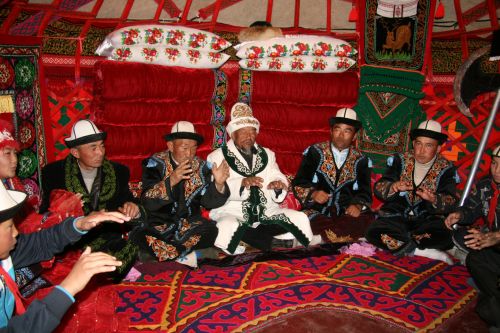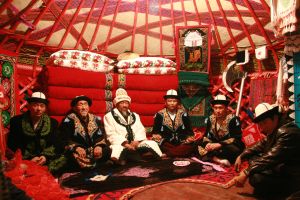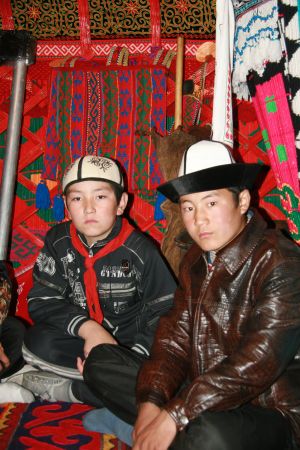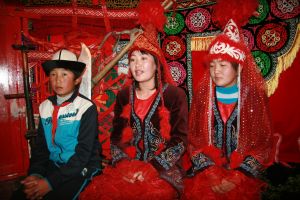Manas
Manas is a huge epic poem of the Kirgiz people, around 160,000 of whom live in the Xinjiang Uygur Autonomous Region, in China's far west. The poem, said by some to be the longest epic poem in world history, has more than 200,000 lines divided into eight chapters, and depicts a panorama of Kirgiz history encompassing politics, economics, philosophy and culture. It has been dubbed the encyclopedia of Kirgiz. This oral epic is also an expression of the inner world of the Kirgiz and reflects their deep attachment to Islam.
The poem takes its name from the hero Manas who appears in the first chapter. Its theme is the courage and passion of a human being in the face of danger and difficulties. It is also a paean to love.
Chapter One, Manas: In the stirring opening to the epic, the hero Manas unites a group of enslaved tribes to fight against the tyranny of their enemies the Kelemake and the Qidan.
Chapter Two: Semetey succeeds his father Manas as the leader of the struggle for independence. But he is betrayed by Kan Qiaolao and killed. The Kirgiz again fall under the oppressive rule of the Kelemake.
Chapter Three: Seytek, the third successor, revives his people by punishing traitors and expelling enemies.
Chapter four: Kenenim, the fourth successor, punishes greedy nobles and unifies the people.
Chapter Five: Seyit, the fifth successor, organizes the people to expel an evil spirit from the tribe.
Chapter Six, Asilbaqa-Bekbaqa: Asilbaqa dies young and is succeeded by his brother Bekbaqa who continues the fight against the Kelemake.
Chapter Seven: Sombilek, the seventh successor, successfully expels the Kelemake, Tanggute and Mangete and liberates his people.
Chapter Eight: Qiktey, the eighth successor is forced once more to battle the returning Kelemake.
Each chapter could stand on its own as an independent epic; taken together they form a historic poem of immense grandeur and significance.
But as the composers and singers of epics (the Manaschi) grow old and pass away, this precious poem, the soul and heritage of the Kirgiz people, faces a new challenge – that of survival in the modern world.



